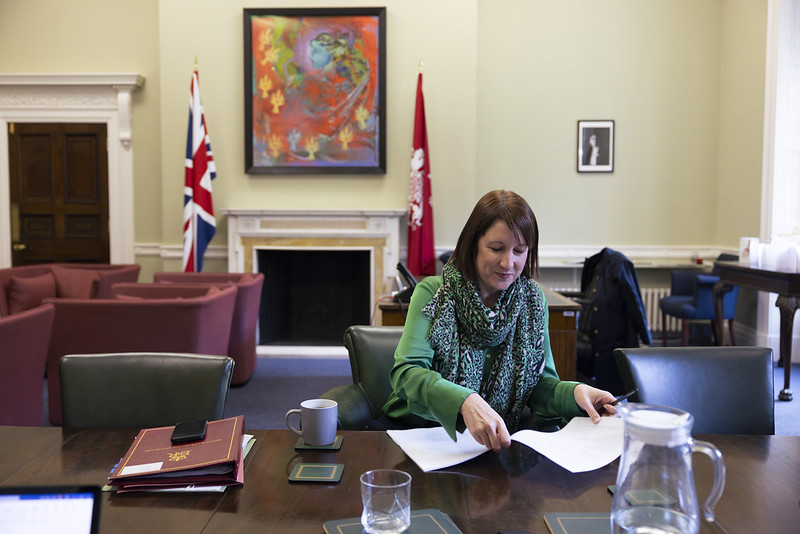
Chancellor Rachel Reeves gave no indication in today’s Budget that the government would extend the current first-time buyer (FTB) stamp duty threshold, which is due to expire in March.
Under the current temporary measures FTBs currently pay no stamp duty tax for home purchases under £425,000, this was raised from £300,000 as part of the mini-Budget two years ago. It is one of the few measures that remains from that fiscal event.
All other homebuyers currently pay stamp duty if their home costs more than £250,000 but was due to drop to £125,000 in March next year – taking the tax bill on an average priced home in England from £2,978 to £5,478.
Earlier this month it was revealed that stamp tax receipts for April 2024 to September 2024 stood at £8.6bn, representing £0.9bn higher than the same period last year.
While there has been no announcement of an extension to the FTB stamp duty threshold, Reeves revealed that stamp duty would increase for second homes and investment properties from 3% to 5%, effective tomorrow.
Announced in today’s Autumn Budget, Reeves stated: “In our manifesto we committed to reforming stamp duty land tax to raise revenue while supporting those buying their first home.”
“This will support over 130,000 additional transactions from people buying their first home, or moving home, over the next five years.”
Commenting on the Budget, Yopa chief executive officer Verona Frankish says: “With no stamp duty relief extension granted today many homebuyers will be in for a fright should they look to purchase from March of next year.”
“Whilst many FTBs will still benefit from a stamp duty free purchase should they remain within the previous £300,000 threshold, many existing home buyers won’t be so lucky. Those existing buyers purchasing over the value of £250,000 are set to be hit by the maximum increase in tax which will see an additional £2,500 added to the already high cost of home buying and ownership.”
Meanwhile, Mortgage Advice Bureau deputy chief executive officer Ben Thompson states: “Not extending the current uplifted threshold for Stamp Duty leaves the Chancellor at risk of all the good work done over the last year. People will simply choose not to move, continue to be stuck renting with all the uncertainty that that brings.”
With house prices rising, many more buyers will end up with a Stamp Duty bill, or face paying even more. At this phase in what has been a very slow and fragile recovery, change is unwelcome and potentially damaging, and the extension should have been left well alone.”
“Moreover, and somewhat puzzlingly, this move contradicts Labour’s narrative that they want to encourage and see a higher level of homeownership.”
Landmark Information Group chief executive officer Simon Brown adds: “The decision from government to not extend existing stamp duty exemptions for primary residences will inevitably create a rush of transactions as movers scramble to complete before the proposed stamp duty deadline on 31st March 2025 – something conveyancers, in particular, are already preparing for.”
“However, with average completion times already so slow, many buyers may not make the deadline, creating a ‘cliff edge’ effect. After this surge, transactions risk stalling dramatically, leaving the market in an even more fragile state.”
“We urge the Government to consider the long-term impact of this measure and focus on working with industry to improve the efficiency of the home-moving process – mitigating the market dampening effects.”



